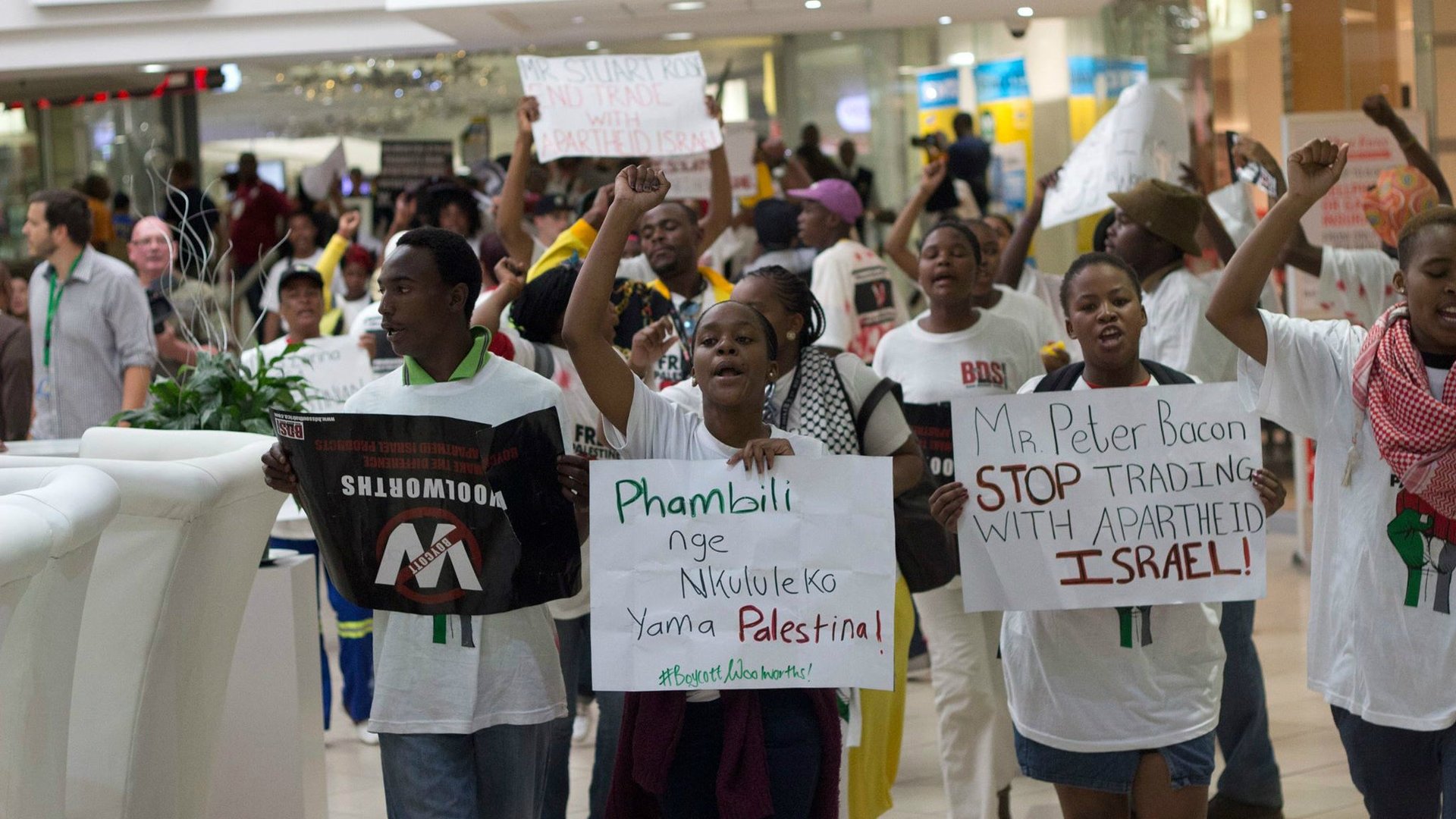South Africa’s version of Whole Foods faces calls to halt purchases of Israeli produce
A movement that advocates Israel’s pullout from Palestinian territories is sparking calls for a boycott directed at one of South Africa’s most prominent retailers.


A movement that advocates Israel’s pullout from Palestinian territories is sparking calls for a boycott directed at one of South Africa’s most prominent retailers.
The campaign, which is being spearheaded by BDS South Africa, part of the larger BDS (for boycott, divestment, and sanctions) campaign started in 2005, aims to persuade Woolworths, an upscale grocer that touts fresh produce, sustainable farming, and locally sourced foods—much like Whole Foods Market in the US—to halt purchases of fruits and vegetables from Israel.
In recent weeks, supporters of the boycott have massed at Woolworths outposts in Johannesburg, Cape Town, and elsewhere to urge shoppers to withhold business from the chain during the run-up to the company’s annual meeting, which is slated for Nov. 24.
“Woolworths claims to believe in the principle of responsible citizenship but sourcing from Israeli companies in violation of the BDS call contradicts this principle,” Kwara Kekana, a spokesperson for BDS South Africa, writes in an email to Quartz.
For its part, Woolworths, which has 633 stores in South Africa and earned about $3.6 billion in the year ended June 29, has refused to yield. The company notes that it sources 95% of its food locally and imports less than 1% of its stock from the Middle East, with no products from the Palestinian territories.
“We respect our customers’ right to make individual purchasing choices, which is why we clearly label every product’s country of origin and fully comply with government guidelines on product from Israel,” Woolies, as the chain is known locally, said in a statement, referring to a requirement that goods imported into South Africa from the West Bank denote their source.
Not all of the interested parties have been as circumspect. Recently, some members of the Congress of South African Students’ branch in the Western Cape province placed a pig’s head in the kosher section of a Woolworths store in Cape Town to mark their league with the boycott movement.
BDS South Africa, the Congress’ national organization, and the governing African National Congress all condemned the incident, which South Africa’s Jewish Board of Deputies termed a “hate-filled” act that had nothing to do with human rights activism.
“Our calls for solidarity with the people of Palestine and for heightened action to boycott and isolate Israel is not a call or a campaign against Judaism nor is it anti-Semitic,” the ANC said in a statement.
The history of the ANC is deeply intertwined with boycotts. In the two decades that preceded the fall of apartheid in 1994, the ANC called for international sanctions and divestment from South Africa itself, to reinforce political pressure on the country to dismantle apartheid.
The BDS movement, which began with a call by Palestinian political parties, trade groups, and others for boycotts, modeled itself in part on South Africa’s struggle. The campaign’s local arm, BDS South Africa, in particular cites the influence of Oliver Tambo, the late anti-apartheid leader who served as president of the African National Congress in exile and led the call for international sanctions and divestment from the country.